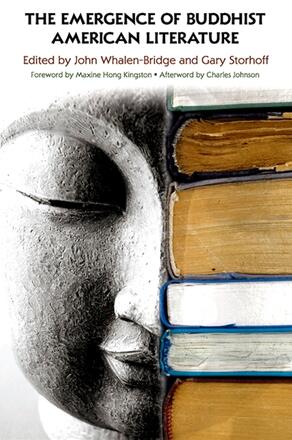
The Emergence of Buddhist American Literature
Alternative formats available from:
Looks at Buddhist influences in American literature and how literature has shaped the reception of Buddhism in North America.
Description
The encounter between Buddhism and American literature has been a powerful one for both parties. While Buddhism fueled the Beat movement's resounding critique of the United States as a spiritually dead society, Beat writers and others have shaped how Buddhism has been presented to and perceived by a North American audience. Contributors to this volume explore how Asian influences have been adapted to American desires in literary works and Buddhist poetics, or how Buddhist practices emerge in literary works. Starting with early aesthetic theories of Ernest Fenollosa, made famous but also distorted by Ezra Pound, the book moves on to the countercultural voices associated with the Beat movement and its friends and heirs such as Ginsberg, Kerouac, Snyder, Giorno, Waldman, and Whalen. The volume also considers the work of contemporary American writers of color influenced by Buddhism, such as Maxine Hong Kingston, Charles Johnson, and Lan Cao. An interview with Kingston is included.
John Whalen-Bridge is Associate Professor of English at the National University of Singapore. He is the coeditor (with Sor-hoon Tan) of Democracy as Culture: Deweyan Pragmatism in a Globalizing World, also published by SUNY Press, and the author of Political Fiction and the American Self. Gary Storhoff is Associate Professor of English at the University of Connecticut at Stamford and the author of Understanding Charles Johnson.
Reviews
"This collection offers an excellent and newly renovated place from which to continue the study of Buddhism in American literature. It will become an essential critical volume." — Religion and the Arts
"…signals a significant turn in critical understanding of Buddhism in U.S. literature—one whose methodology emphasizes the groundlessness shared by Buddhism and contemporary literature studies while also grounding itself, necessarily so, in the ways in which Buddhism is shaped by the particularities of history." — Beat Studies
"…a thought-provoking analysis of the myriad ways American literature has contributed to our Buddhist practice and vice versa." — Tricycle
"…a groundbreaking anthology of critical writings making vital new connections between buddhadharma and American literature…" — Buddhadharma: The Practitioner's Quarterly
"This book in your hands is a trove of the best we can do to put the Dharma into words." — from the Foreword by Maxine Hong Kingston